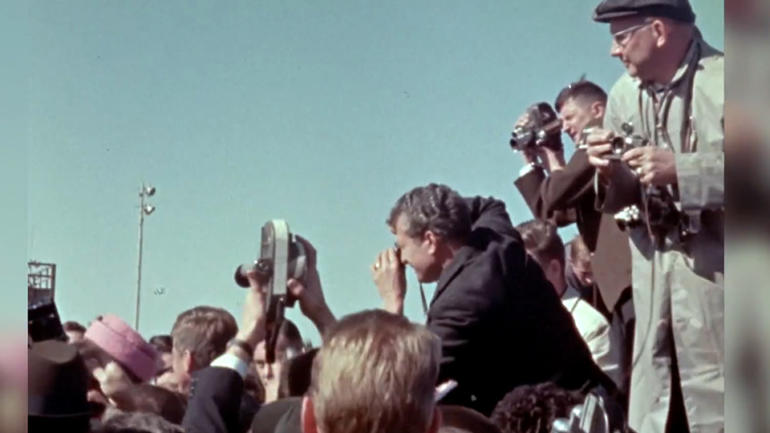November 21 is World Television Day. Since its invention in the 1920s, TV has come a long way in terms of technology and programming.
CGTN’s Gerald Tan takes a look now at how it has shaped the face of politics in the United States.
The year is 1960. Republican Richard Nixon versus Democrat John F. Kennedy — the first U.S. presidential debate to air on television.
It changed everything.
On radio, many polls gave the contenders a tie, if not the edge to Nixon. But on TV, Nixon appeared pale, gaunt, and sweaty after a recent hospitalization. He was a shadow of the tanned, confident-looking Kennedy. People watching thought Kennedy won without contest.
Overnight, television, once considered an appliance solely for entertainment, unleashed its power to shape the arc of politics. Coast to coast, and around the globe, the Kennedy presidency played out in living rooms, from his glamorous family life to his assassination.
A decade later, the Watergate scandal. Then President Richard Nixon took to TV to maintain his innocence. But as evidence for his complicity mounted, Nixon stepped down to avoid being impeached by the House of Representatives.
An impeachment trial took place in 1998 over President Bill Clinton’s denial under oath that he did not have a sex with a White House intern.
The House voted to impeach Clinton for perjury. But a senate trial failed to get two-thirds majority needed to remove him from office. The entire proceedings dominated TV news.
Today, politics are a spectator sport. From campaigns and debates to cable news and Sunday talk shows, coverage is wall-to-wall across the political spectrum.
And new media is playing a role in the current impeachment hearings into President Donald Trump’s Ukraine dealings. Trump attacked a witness on Twitter during her testimony –she was given a chance to respond live.
The way we consume video is changing. Screen sizes are getting both bigger and smaller. Is TV still TV when watched on a portable screen?
No matter how live pictures are broadcast, they still have that unique ability to shift public perception in politics in real time.
 CGTN America
CGTN America

